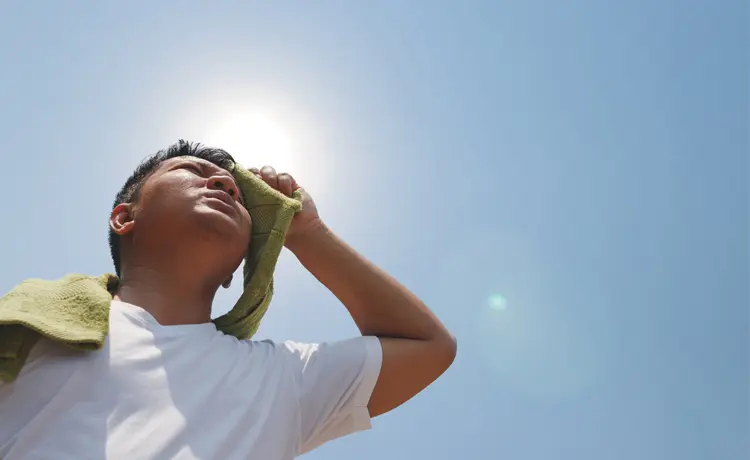Extreme heat is the leading weather-related cause of death in the U.S. Extreme heat and humidity can be extremely dangerous, as they push the human body beyond its limits. To combat the effects of extreme heat, the human body must work very hard to maintain a normal temperature. People who don’t take the necessary precautions to bring down their body temperatures are vulnerable to many health risks. Use these tips and guidelines to stay safe during extremely hot weather.
How to Prepare for Extreme Heat
When preparing for extreme heat, take these precautions to stay out of harm’s way:
- Prepare to stay in an air-conditioned location for as long as possible. If any of your loved ones don’t have an air-conditioning, invite them to stay with you until the heat subsides. (Don’t leave any pets in a location that isn’t air-conditioned during periods of extreme heat.)
- Drink a lot of water and avoid sun exposure.
- Don’t use the stove or oven, as they can heat up your home.
- Keep shades closed to prevent the sun from heating up your home.
- Check the local news for updates on health and safety, and upcoming weather changes.
How to Stay Safe in the Heat
If you must be outdoors during extreme heat, take these precautions to minimize risk:
- Drink a lot of water, even if you don’t feel thirsty.
- Stay out of direct sunlight as much as possible.
- Wear light-colored and loose-fitting clothing.
- Wear a hat to protect your head and face.
- Avoid any strenuous activities, including exercise.
Never leave people or animals unattended in a closed car, as this is very dangerous. If you see anyone in a hot car, alert authorities immediately.
Certain groups of people are particularly vulnerable to extreme heat, including:
- Older adults and children.
- People who are sick.
- People with mental illnesses.
- People who are overweight or obese.
Check in with family, friends, loved ones or neighbors during periods of extreme heat and follow the instructions listed above. Check on pets to make sure they are safe.
How to Spot Signs of Heat-Related Health Issues
If you experience any of the following symptoms, you might have heat stroke. Contact 911 immediately, as these symptoms could indicate a medical emergency:
- Extremely high body temperature (above 103 degrees)
- Hot, red, very dry or very damp skin
- Quick and strong pulse
- Headache and dizziness
- Confusion
- Passing out
If you experience any of the following symptoms, you might be experiencing heat exhaustion. Move to a cool place, sip water and try to cool down using a wet cloth or a cool bath. If these symptoms persist longer than one hour or get worse, contact 911:
- Feeling tired or weak
- Cold and clammy skin
- Quick and weak pulse
- Heavy sweating
- Nausea or vomiting
- Muscle cramps
For more information on the different signs and symptoms of heat-related illness, visit the CDC website. For more information on various Security & Preparedness products available to purchase for your community, browse the QuickSeries® library of guides, including Disaster Preparedness.
